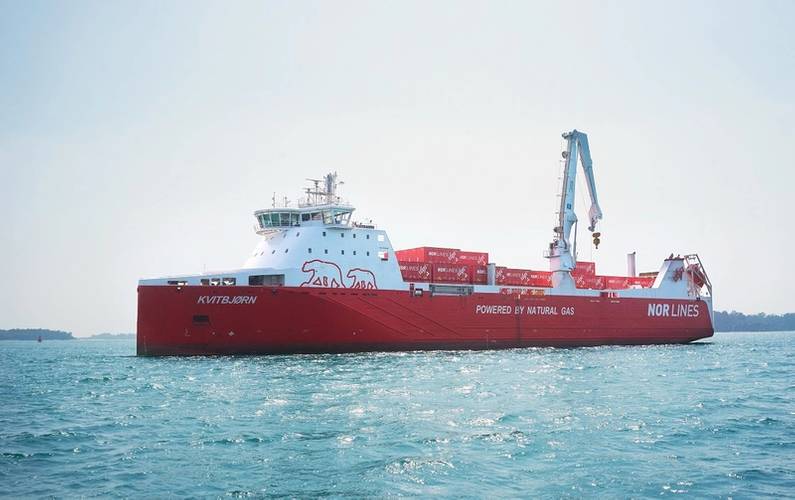Nor Lines’ new flagship MV Kvitbjørn is ready for its naming ceremony and regular operation as “the most environmentally friendly ship in the world,” the vessel’s owner announced. The naming ceremony will take place on April 16 at Skagenkaien in Stavanger, Norway.
“MV Kvitbjørn is the first of two new natural gas-powered cargo ships which will replace older tonnage on route between northern Europe and Norway,” Nor Lines CEO Tor Arne Borge said. “The ship type has already won several prestigious awards both for its innovative design and for its contribution to climate-friendly logistics.”
Godmother to the new ship will be CEO of Innovation Norway, Anita Krohn Traaseth, who said, “It is an honor to be the godmother of MS Kvitbjørn, the most environmentally friendly cargo ship in the world. The ship represents a completely new generation of ships and is a great example of how innovation and eco-friendliness go hand in hand.”
The LNG ships are developed in close cooperation with Rolls Royce. In addition to use liquefied natural gas as fuel, the ships also feature innovations related to hull design, propulsion systems and production of power on board.
Each of the vessels will have a capacity equivalent to at least 200 truck loads and increase the flexibility in transportation between road and rail to the sea. The ships have roll on – roll off capacity, as well as a larger crane.
Following the ceremony, the new flagship will be ready for ordinary route operations.
MV Kvitbjørn, along with her sister ship MV Kvitnos coming in July, are the first two ships in Nor Lines renewal and upgrading of their fleet. In total the number of ships will be reduced from nine to seven, but at the same time the fleets combined capacity will be upheld. The average age of the fleet goes down from 29.1 years to 11.2 years, which represents a decrease in age of 61.5%. In relation to the ships that are being replaced the new LNG carriers will use up to 18% less energy. CO2 emissions are reduced by 38%, NOx emissions by 90%, while SOx and particulate emissions are completely reduced by 100%.




















